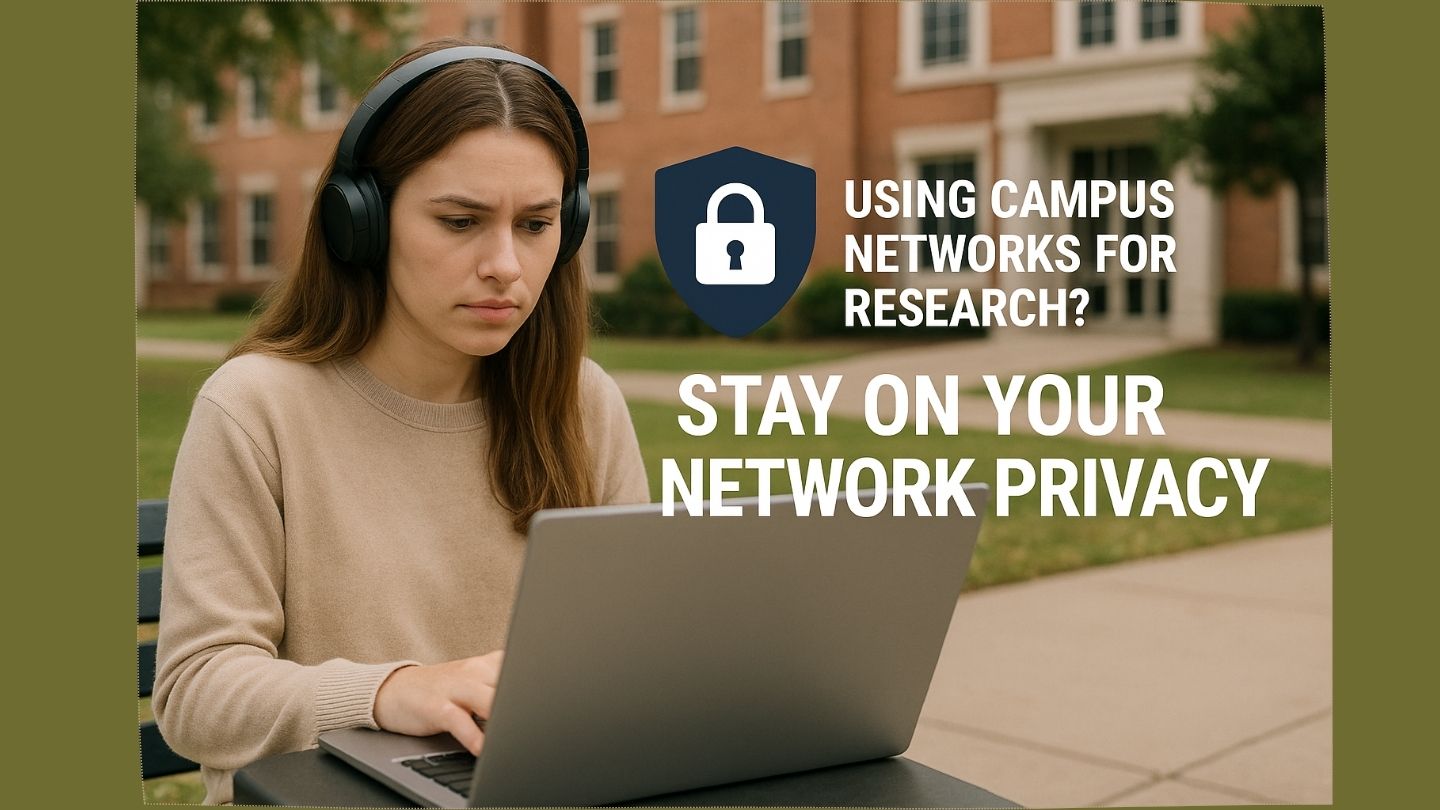
Using Campus Networks for Research? Why Your Network Privacy Matters More Than You Realise
University networks often seem safe. They're fast, free, and always there when you need them. Still, what many people forget is that these networks are shared spaces — hundreds, sometimes thousands of users connected through the same open system. It’s like working in a public library where anyone could peek over your shoulder. While you’re uploading research notes, someone else on the same Wi-Fi could be watching your traffic.
Campus systems usually have routers, proxies, and firewalls in place, but that doesn’t automatically mean your activity is private. Many institutions keep logs of what’s being accessed, and in some cases, they may even share data with external service providers. For students, faculty, or journalists handling sensitive topics, that’s a real concern.
Why Protecting Research Data Matters
When you’re preparing a thesis or collecting data for a project, that information is yours alone. Yet if it travels through an unencrypted connection, it can easily be intercepted. The person doesn’t need physical access to your device — just the same network.
And the truth is, not all research topics are neutral. Studies on politics, public health, or environmental violations can draw attention from people who’d rather you didn’t dig too deep. That’s why taking a simple step to secure your internet sessions with a VPN isn’t just about convenience — it’s about protecting your work, your identity, and sometimes even your freedom to research openly.
The “Who Would Care About My Data?” Trap
You might think, “I’ve got nothing to hide.” Most of us do. But privacy isn’t only about hiding things; it’s about control. Even basic details — your browsing habits, location, or device type — can be pieced together to build a profile. Those profiles are valuable. They can be sold to advertisers or quietly stored in databases for later use.
Think of it this way: locking your front door but leaving a window wide open doesn’t make your home secure. The same logic applies to public or campus Wi-Fi. Logging into personal accounts or sharing research files without protection leaves a gap that someone could exploit.
Building Safer Habits on Campus
-
Turn on your VPN before starting any online session.
-
Keep your university email strictly for academic work.
-
Transfer files using encrypted drives or verified cloud tools.
-
Always log out of shared computers — don’t just close the tab.
-
Clear your cookies and browsing history every few days.
Real Security Starts with Routine
Protecting your privacy on campus networks isn’t only about technology — it’s about awareness. The more mindful you are, the fewer traces you leave behind. Strong passwords, encrypted connections, and cautious sharing habits can quietly protect years of work.
At the end of the day, finishing your research is important — but doing it safely matters just as much. Because once data leaves your hands, getting it back under control is almost impossible. A little vigilance now can save you a lot of regret later.
Disclaimer:
This article is intended for educational and informational purposes only. Any digital tools, VPNs, or software products mentioned are cited solely to illustrate best practices in online security and data protection. Their inclusion does not imply endorsement, recommendation, or affiliation. Readers should independently evaluate and verify the suitability, legality, and privacy policies of any third-party service before use. The author and publisher assume no responsibility for any loss, damage, or data breach resulting from the use or misuse of these products or methods.
College Education

